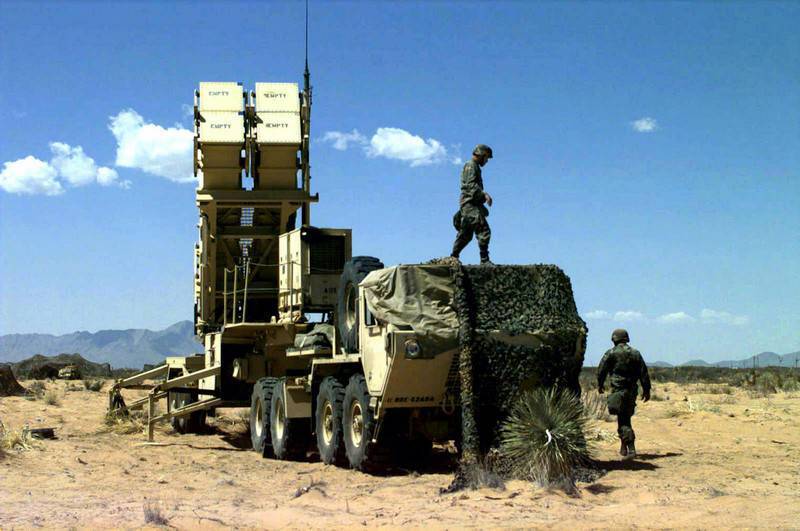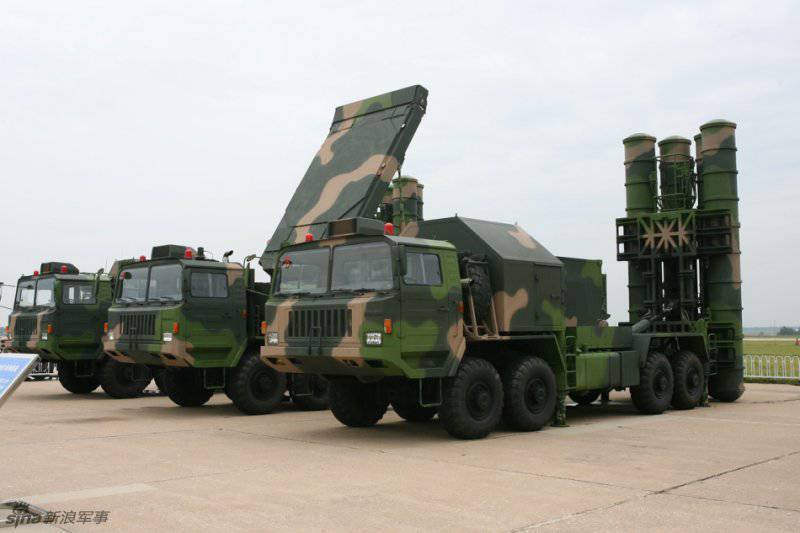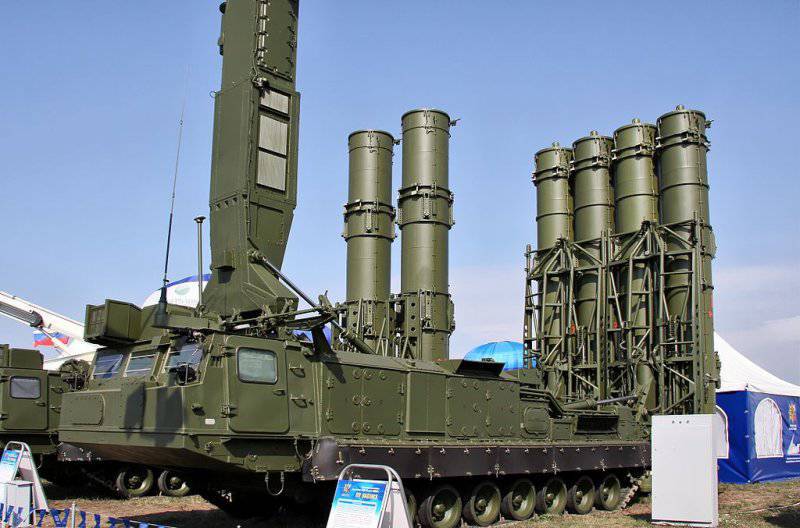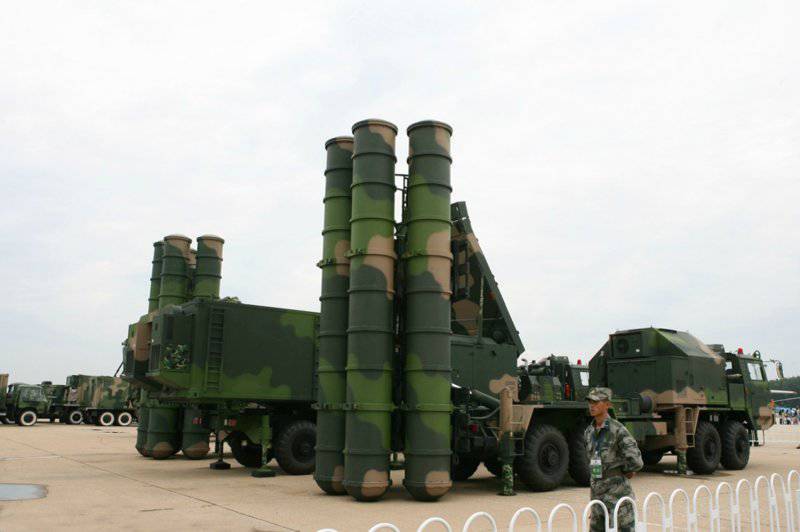Turkish tender T-LORAMIDS: announcement of the winner and possible consequences
The tender for the purchase of new anti-aircraft missile systems for the Turkish armed forces was one of the longest stories country. The start of the competition was announced in 2009. Shortly thereafter, the European Consortium Eurosam submitted their applications, proposing SAMP / T SAM, American Lockheed Martin and Raytheon alliance with Patriot PAC-2 GMT and PAC-3, Russian Rosoboronexport with С-300ВМ, and Chinese import-export CPMIEC with HQ-9. The composition of applicants for the contract almost immediately became the reason for subsequent events that adversely affected the tender. Thus, it was originally planned that the contract for the supply of anti-aircraft systems will be signed at the beginning of 2012. However, the winner of the competition was named almost two years after the originally planned date.

Just a few months after the start of the tender, the first reports appeared on the possible purchase by Turkey of the Russian C-300BM air defense missile systems. There was no official confirmation of such information, and the rumors were based on the fact that the Turkish and Russian sides began negotiations on the conditions of possible supplies. It should be noted that simultaneously with these negotiations, Turkish officials began discussions on relevant issues with other bidders. In particular, Ankara negotiated with Washington. As far as we know, one of the requirements of the Turkish military and industry was the partial localization of the production of anti-aircraft systems in Turkish enterprises. In this regard, the United States for a long time refused the possible supply of air defense system to Turkey.
In the middle of 2011, US officials made a statement, due to which the T-LORAMIDS competition almost stopped. According to some reports, by that time, Turkey was ready to acquire Russian anti-aircraft missile systems. However, the United States warned her against such a move. The United States substantiated its point of view, citing peculiarities of communication and control systems. Since Turkey is a member of NATO and uses equipment built in accordance with the standards of this organization, it may have serious problems with the integration of the purchased complexes into existing systems. In addition, Turkey was hinted that it could be "disconnected" from information received from the early warning radar of a missile attack in Kürerjik. The fact is that information from this station first arrives at the NATO command center in Germany and only then is transmitted to other countries.
By the end of 2011, a strange situation had developed. The most likely subject of the future contract were considered anti-aircraft systems of American or Russian production. At the same time, the United States remained silent about the sale of its Patriot air defense system, while at the same time warning Turkey about the possible consequences of choosing Russian-made products. In connection with these events, the SAMs SAMP / T of the European consortium Eurosam and the Chinese complex HQ-9 temporarily faded into the background. By the beginning of 2013, the situation with the T-LORAMIDS tender reached the point that there were reports about the possible appearance of its own Turkish project, which would provide the army with the necessary air defense systems and do without problems in relations with NATO allies.
In June 2013, foreign media published new information about the protracted tender. With reference to some sources close to the Turkish Defense Procurement Agency, it was argued that at present Turkey is showing great interest in the Chinese HQ-9 SAM and may initiate contract negotiations. Probably, this information turned out to be true and the Turkish military was really interested in Chinese-made anti-aircraft systems. At least, such messages received confirmation in the form of official information on the results of the tender.
The result of several years of negotiations, discussions and veiled threats was the decision of the Turkish leadership announced on September 26. Turkey intends to acquire the 12 divisions of the HQ-9 ADMS in the export version called FD-2000. The cost of the contract is estimated at about 3,4 billion US dollars. According to official data, the reason for this decision was the price of Chinese anti-aircraft systems. By this parameter, they bypassed all competitors. A few days after the winner was announced, the Turkish edition of Hurriyet Daily News published an interview with the head of the defense industry secretariat, M. Bayar. The official said that the SAMP / T air defense system of European production ranked second in the tender in terms of economic indicators, and the US Patriot family ranked third. The Russian C-300BM air defense system did not reach the final stages of the tender.
M. Bayar also spoke about some details of the contract being prepared for signing. Turkey and China intend to build the FD-2000 air defense system together. Half of all work will be carried out in Turkish enterprises. The Chinese side promised to begin supplying ready-made complexes and their individual components for assembly in Turkey in the near future. It is possible that Turkish officials attracted not only the characteristics and cost of Chinese anti-aircraft systems. From the very beginning of the competition, Turkey regularly reminded that it wants to put some of the work on the production of the air defense system on its industry and thereby help it to master new technologies. Russia and the United States, as far as is known, were not ready to transfer the necessary technologies to the Turkish industry.
Immediately after the announcement of the tender results, statements were made by representatives of the United States and NATO. Such a choice of the Turkish military caused them to be perplexed and discontent. First, the North Atlantic Alliance and the United States do not understand how Turkey intends to integrate Chinese-made air defense systems into NATO’s communications and control systems. Secondly, the United States is not happy with the fact that their NATO ally is going to buy military equipment from the CPMIEC corporation, which is being sanctioned by the United States. The reason for these measures was the collaboration of CPMIEC with Iran and the DPRK.
In response to NATO’s concerns, M. Bayar said that the new Chinese air defense missile systems will be fully integrated into Turkey’s existing air defense system. Thus, the new acquisition of the Turkish armed forces will be able to fully work with the relevant NATO systems. In addition, the head of the defense industry secretariat assured that there would be no information leaks and therefore NATO could not worry about the possible negative consequences of the adoption of the HQ-9 air defense system. How exactly the interaction of Chinese-made complexes with other systems built according to NATO standards will not be clarified.
Shortly after the interview with the representative of the Turkish Ministry of Defense, official Beijing expressed its position on the issue. According to the statements of the Ministry of Foreign Affairs of China, the signing of a contract for the supply of switchgear HQ-9 / FD-2000 is the next step in the international cooperation of China and Turkey in the military-technical field. At the same time, Chinese diplomats called on Western countries to objectively review the results of the T-LORAMIDS tender, without politicizing them.
Currently, representatives of Turkey and China are discussing the details of the planned contract. The main points of this agreement were agreed upon earlier, during the selection of the most advantageous offer. Now it remains for the parties to discuss a number of important nuances and determine the dates for the start of deliveries of both ready-made systems and components for assembling air defense systems in Turkey. It is estimated that it will take several years to complete the entire order.
The anti-aircraft missile system HQ-9 chosen by the Turkish military is not without reason considered a copy of the Soviet / Russian systems of the C-300P family. In the early nineties and the two thousandth, China acquired a number of C-300PMU1 and C-300PMU2 SAM systems, which were carefully studied. A number of information obtained from the analysis of both complexes, allowed Chinese engineers to improve existing projects. Thus, in fact, the HQ-9 air defense system is a further development of the developments that China had, taking into account the information obtained from the analysis of Soviet and Russian-made equipment.
For a number of characteristics, the HQ-9 air defense system is similar to the Soviet / Russian complexes studied by Chinese specialists during its development. The maximum range and height of destruction of the aerodynamic target are 200 and 30 km, respectively. Each launcher carries four guided missiles. Depending on the tactical need, the complex can use several types of missiles. It should be noted that the HQ-9 complex is the first Chinese system of this class capable of intercepting certain types of ballistic missiles.
When creating a new anti-aircraft complex, the Chinese defense industry took into account some features of the modern struggle for control over the airspace. The main method of suppressing enemy air defense is currently considered to be the detection of radar stations and their destruction by high-precision weapons. The HQ-9 anti-aircraft missile system is said to be capable of operating in a so-called. passive mode, which increases its survivability in conditions of active opposition of the enemy. To this end, the complex has several electronic intelligence posts designed to search for targets in the protected air space without using radar stations. The detected object is supposed to be attacked by an anti-aircraft missile with a passive radar homing head. Such ammunition is self-guided by radio signals emitted by an enemy aircraft. Thus, a working on-board radar of an aircraft or a data transmission system of a reconnaissance UAV contributes to the operation of ground-based weapons and an anti-aircraft missile complex. It should be noted that the equipment and ammunition for work in the passive mode is part of the standard equipment of both the HQ-9 complex and its export version FD-2000.
Due to this, acquiring Chinese air defense missile systems, Turkey gets some new opportunities to protect its airspace. Separately, it is worth noting that at present, only China offers for export anti-aircraft systems with the possibility of passive work at reasonable prices for customers. As for Russia, a number of such systems are currently not subject to sale at all. As a result, Turkey receives anti-aircraft missile systems with good characteristics, and China is promoting its products to the international market. In addition, the Turkish industry, which will have to undertake the implementation of the order of the armed forces, will receive from the Chinese a number of important technologies.
A number of issues related to the Turkish-Chinese contract can already be considered resolved. However, there are some not entirely clear points. For example, the integration of Chinese systems in the structure of communication and control used by the Turkish armed forces, built in accordance with NATO standards. Probably, the Turkish-Chinese cooperation should lead to the creation of a certain set of tools designed to convert the signals of some systems into a form that meets other standards. However, the very possibility of creating such equipment is very doubtful. Because of this, Turkey, as its NATO allies warned, can really get a lot of problems associated with international cooperation.
As a result, a tender that was delayed for several years for the supply of air defense missile systems for the Turkish armed forces may have an unexpected continuation related to the fulfillment of the contract and ensuring the efficiency of the systems built. Moreover, previous events around the T-LORAMIDS tender may hint at the consequences of a political nature. What exactly will happen after the signing of the contract - time will tell.
On the materials of the sites:
http://janes.com/
http://lenta.ru/
http://hurriyetdailynews.com/
http://armstrade.org/
http://defensenews.com/



Information